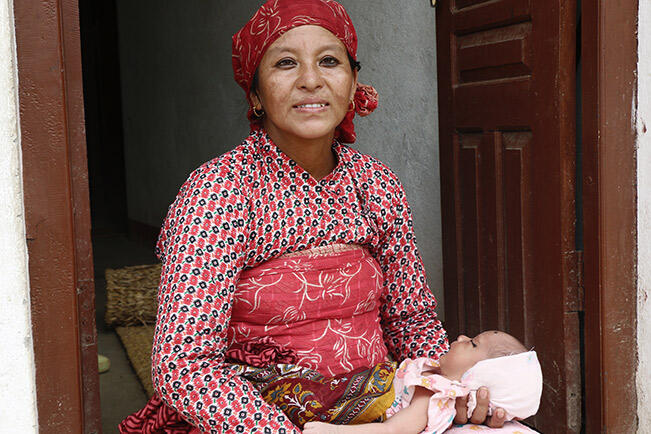Nepal was jolted by a powerful earthquake on 25 April 2015. UNFPA and its partners mobilized immediate support for pregnant women, vulnerable girls and other affected community members. © UNFPA Nepal
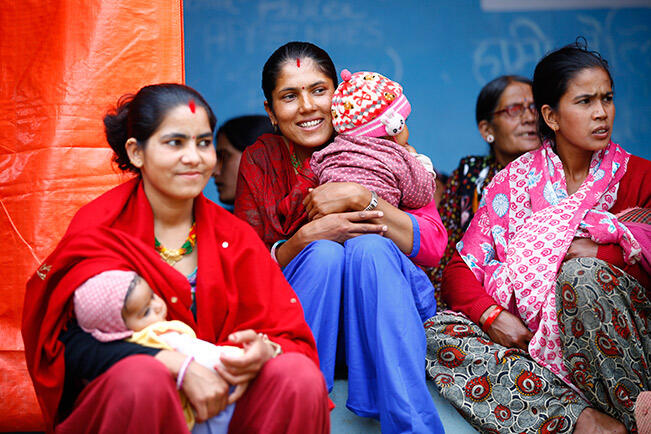
Health facilities had been destroyed, and gender-based violence was a major risk, with many women and girls forced to live in the open or in temporary shelters. UNFPA targeted its support to the 14 most-affected districts. © UNFPA Nepal
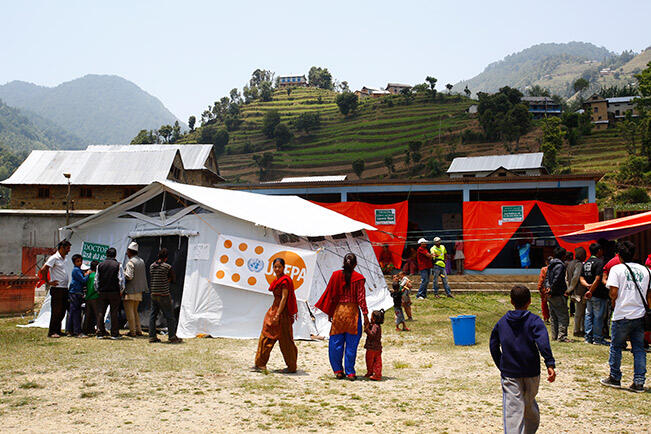
Women and girls’ specific needs are often overlooked in crises. To meet these needs, UNFPA delivered dignity kits, which contain supplies for menstrual hygiene, soap, a change of clothes and even a flashlight for safety. © UNFPA Nepal
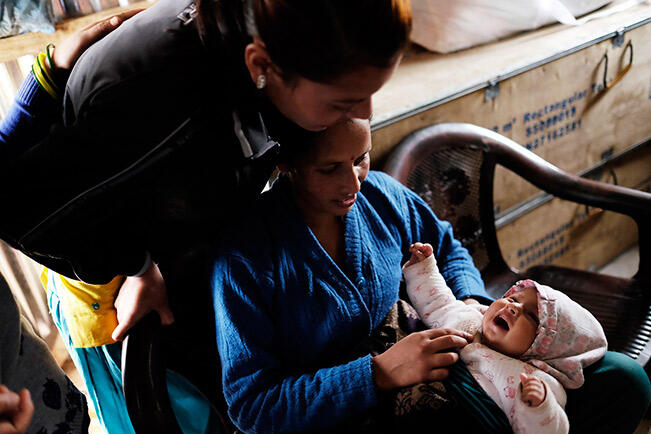
Over 55,000 dignity kits were distributed by the end of September. The distribution was also an opportunity to speak with women and to raise awareness of available services and support. © UNFPA Nepal
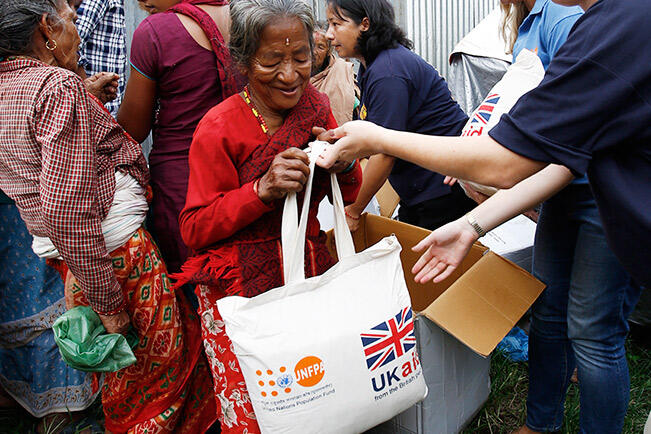
Jogmaya Maharjan’s home was destroyed in the disaster. Weeks later, her husband was paralyzed by a stroke. A neighbour recommended she visit a female-friendly space, where counselling, health care referrals and other support are provided. © UNFPA Nepal
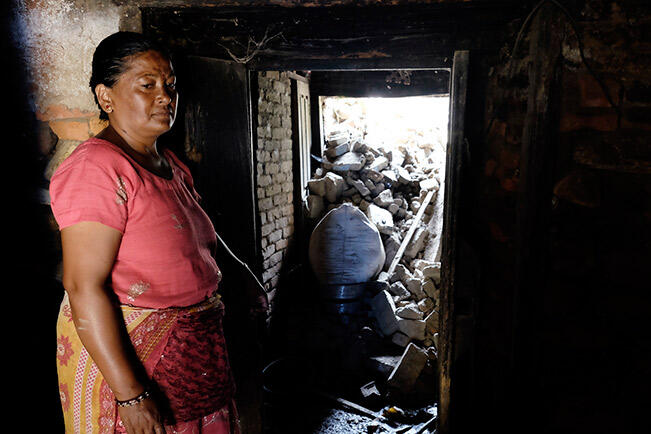
“It’s been calming to come here, and helped me to stay together,” Ms. Maharjan said. In the months following the disaster, UNFPA established 14 of these spaces, which were visited by over 9,000 women. © UNFPA Nepal
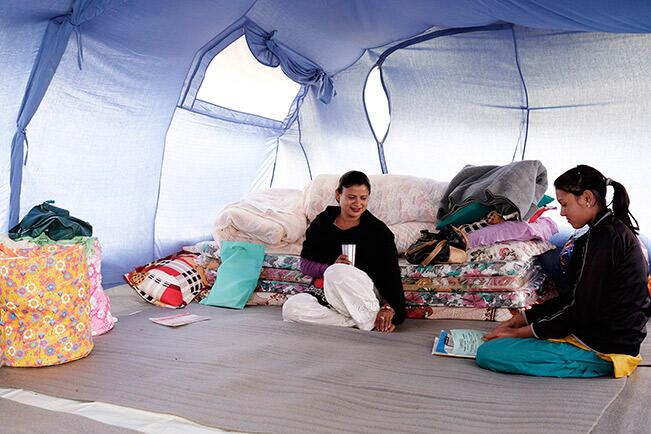
Many attending the spaces are survivors of violence. “Many women got an opportunity, for the first time, to express their pain,” counsellor Pooja Rishal said. Individual and group counselling are provided, in addition to other activities. © UNFPA Nepal
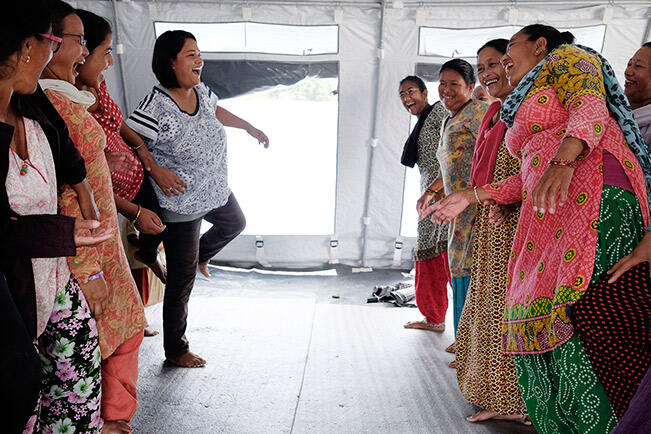
Female-friendly spaces also provide meals, classes and support with income-generating activities. Many also offer child care, safe places to sleep and even yoga classes. © UNFPA Nepal
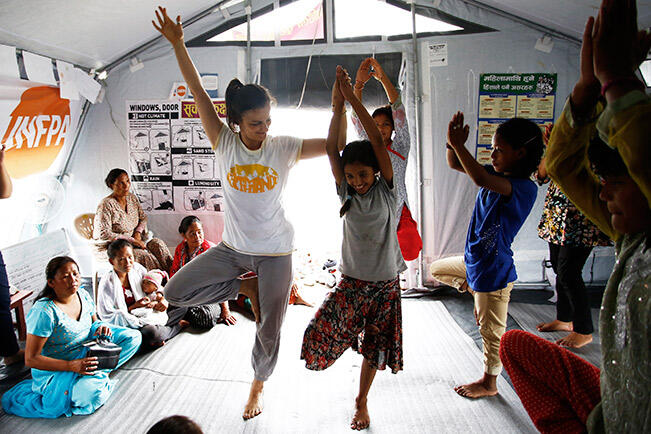
Ishwori Dangol’s life was shattered in the quake. Her son was killed, and, at seven months pregnant, she lost access to health care. Then a reproductive health camp came to her village. “The doctor recommended a C-section,” she said. © UNFPA Nepal
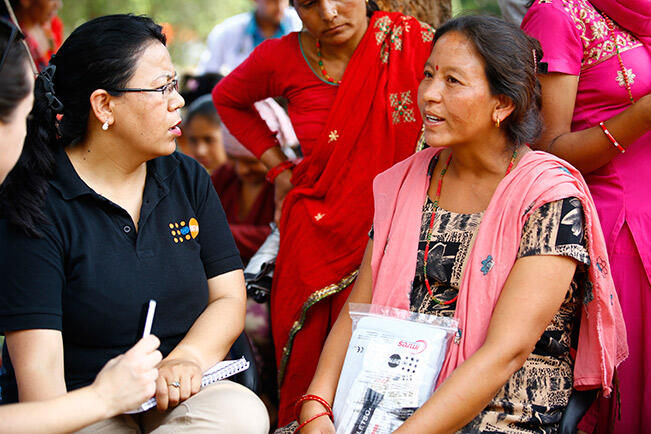
UNFPA-supported reproductive health camps bring essential care to remote quake-affected areas. By the end of September, these camps had delivered over 92,000 services. © UNFPA Nepal
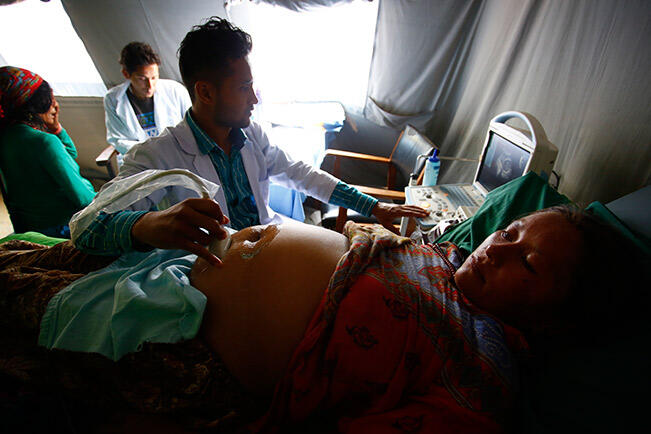
Ms. Dangol was brought to a hospital, where she delivered safely. “My son’s death is the biggest tragedy of my life,” she said. But her daughter’s birth has marked a new start: “I have already found strength to live a normal life again." © UNFPA Nepal
